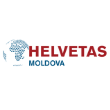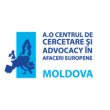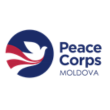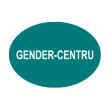Organizații vizate:
Anunțuri de Angajare
- Detalii
- Categorie: Angajări
Return and Reintegration National Consultant, IOM Moldova
Informațiile prezentate în articolul de mai jos pot să nu mai fie actuale sau să nu mai reflecte activitățile și programele curente. Anunțul este păstrat în arhivă pentru a asigura transparența și accesul public la informațiile despre inițiativele și proiectele implementate anterior.
CALL FOR APPLICATIONS
Reference code: SVN2024-07(extended)
Open to External Candidates
Position Title : Return and Reintegration National Consultant
Duty Station : Chisinau, Republic of Moldova
Type of Appointment:Consultancy
Duration of Consultancy : 20 April 2024 – 19 March 2025
Estimated Start Date : As soon as possible
Closing Date : 18 April 2024
Established in 1951, IOM is a Related Organization of the United Nations, and as the leading UN agency in the field of migration, works closely with governmental, intergovernmental and non-governmental partners. IOM is dedicated to promoting humane and orderly migration for the benefit of all. It does so by providing services and advice to governments and migrants.
Nature of the consultancy Return and reintegration national consultant
The overall task of the incumbent will be supporting the Diaspora Relations Bureau return and reintegration sub-programs of the Diaspora Engagement Hub by providing day by day case management, stakeholders engagement, visibility, strategic and operational expertise to promote and facilitate the temporary and permanent return and professional reintegration of Moldovan overseas graduates, Moldovan diaspora and highly skilled returning professionals.
Project Context and Scope
The International Organization for Migration (IOM) is the leading intergovernmental organization in the field of migration. IOM works to help ensure the orderly and humane management of migration to promote international cooperation on migration issues, to assist in the search for practical solutions, and to sustainably engage diaspora in homeland development. Drawing on its long-standing experience, IOM has formulated a comprehensive strategic approach centered on the 3Es for action: to engage, enable, and empower transnational communities as agents for development – with each area involving a range of interventions by governments and other stakeholders, supported by IOM through policy advice and programming. IOM Moldova’s vision prioritizes the need to leverage the positive impact of migration on Moldova’s socio-economic development through strengthening the capacities of relevant public authorities for ensuring an effective country’s diaspora engagement policy design and management, and through designing and implementation of innovative instruments for better engagement of the diaspora in country’s development and harnessing other benefits of migration for the country’s development.
Migration waves, which started in the 1990s, have led to an outflow of Moldovan nationals, with a quarter of the population residing abroad (approx. 840 000 pers., NBS; UN DESA and IOM estim.: 1 mln). The resident population stood at 2. mln persons in early 2023 (versus 4.4 mln in 1991), decreasing by 190,000 persons in the last 5 years, while the population growth rate is negative (-1.8% p.a.) due to low fertility and rapid ageing. In the last four years, the share of migrants aged 18-29 years increased to 66% from 55%. The main drivers of such massive migration are socio-economic: poverty, lack of adequate employment opportunities and low salaries, as well as the allure of higher living standards and opportunities abroad. Lack of economic opportunities is a major cause of migration and the reluctance to return especially for the younger population, emphasizing the close relationship between migration and development (socio-economic, democratic and infrastructure, among others). Most of the Moldovans residing in the EU are well integrated, it being already an established/well-integrated community, present in EU member states since end 1990’s.
Migration has already caused a major shortage of professionals in sectors which are essential to human capital formation (health, education), or those which are necessary to operationalize investments and sustainable economic growth. The professional sectors are affected by two related phenomena: i) brain-drain and de-skilling professionals through emigration; ii) professionals leaving the system, for jobs in the country or abroad; both are caused by un-attractive salary packages, poor social infrastructure, and perceived governance issues. In recent years Moldova has been challenged by vast brain drain phenomenon placing the country in the top ten within the European region in terms of skilled labor force emigration. Data shows that the emigration rate of high-skilled workers is close to 40 percent in Moldova, being the highest amongst health professionals; other affected sectors include education.
One third of the Moldovan students are educated abroad, benefitting from enhanced access to knowledge, cultural experiences, networks, and further professional opportunities. However, the benefits of migration are nearly matched by its negative impact on human capital development, de-skilling, brain-drain, but also expressed in irregular migration and exploitation, children being left behind by migrant parents, and broken families. As 80% of medical graduates do not even enter the profession, many leaving the country, this worsens the medical services in rural areas, which feature 10 times fewer doctors per capita compared with urban areas. Moldova cannot afford to lose professionals and workforce anymore, nor the investments made in educating them.
Many diaspora members are well integrated abroad, yet they yearn to re-connect with the homeland and to contribute to its prosperity with skills and resources. Diaspora plays an important role as vector of change and supporting the reform and keeping the EU-integration path of the country, through active and informed participation in several rounds of parliamentary and presidential elections.
In this context, IOM Moldova has been systematically working to establish closer and more effective contacts between the Moldovan Government and the diaspora, supporting, and protecting Moldovan citizens working abroad, and developing suitable strategies aiming at minimizing the depletion of human capital and making the most of its diaspora’s resources. During 2010-2016, IOM Moldova pilot tested several return and reintegration programs which aimed at supporting and promoting the creation of temporary professional placements for Moldovan overseas graduates and returning migrants to promote definitive return and skill transfer. Moreover, in partnership with the Academy of Sciences of Moldova, IOM Moldova supported the development and implementation of a scientific diaspora temporary return program which worked to improve Moldova's capacity in research, innovation, education and development sector through the temporary return of highly qualified diaspora members.
To further valorize the positive impact of migration and institutionalize the good practices of diaspora engagement for the socio-economic development of the country, the Moldovan Government, with the support of IOM and financial assistance from Swiss Development Cooperation Agency (SDC), has developed and implemented a national umbrella program consisting of several sub-programs aimed at valorizing the human potential of the Moldovan diaspora, titled the Diaspora Engagement Hub (DEH). Conceptualized and pilot-tested by IOM since 2015 and institutionalized and implemented by the Diaspora Relations Bureau since 2017, DEH has been implementing such sub-programs as diaspora professional return, diaspora innovative projects, regional thematic partnerships, diaspora women's empowerment, diaspora crowdfunding projects, diaspora educational centers, diaspora excellence groups.
The scope of the assignment
To further unlock the potential of expatriated Moldovan professionals through both short and long-term assignments in strategic areas for EU integration processes, such as the reformation of the justice sector, labour migration management and social protection, investment attraction, green energy, public finance, health, education, research, development, and innovation, the Joint UN Moldova Migration Multi-Partner Trust Fund Programme (MMPTF), titled “Leveraging the positive impact of migration on Moldova’s development through improved policy evidence and better engaged diaspora,” will involve close collaboration among IOM, UNDP, UNICEF, and WHO. These organizations will work closely with the Diaspora Relations Bureau, Ministry of Education and Research, Ministry of Labor and Social Protection, Ministry of Health, and State University of Pharmacy and Medicine to support the implementation of a national sub-program of the Diaspora Engagement Hub. This sub-program will promote and facilitate the temporary and permanent return and professional reintegration of Moldovan overseas graduates and the engagement of highly skilled diaspora members.
Within the first component of the Diaspora Engagement Hub (DEH) return and reintegration sub-programme, the MMPTF Programme will support Moldovan overseas graduates' professional placements in Moldova’s labor market sectors that align with the knowledge and skills the Moldovan graduates have developed abroad. This initiative aims to facilitate the reintegration of returning graduates into the local workforce by providing them with opportunities that valorize their expertise, as well as promote networking opportunities among returning peers, exchanges of ideas, and mutual support. Selected Moldovan overseas graduates will receive information and logistical support to inform their return and reintegration back home, reimbursement of their international travel expenses, and a monthly living allowance for up to six months, as a top-up to their base salaries in Moldova, as outlined in the operational manual of the sub-programme.
The second component of the DEH temporary return and engagement sub-programme will assist Moldovan public institutions, including those in education, research, development, and health sectors, in identifying and engaging in sustainable cooperation with highly skilled Moldovan diaspora and returning professionals. This initiative aims to harness the expertise and resources of diaspora members and highly skilled returning migrants through temporary or permanent physical and/or virtual returns to advance the transposition of EU acquis Communautaire into national legislation, institutional and policy reforms in the public institutions in Moldova, including advancing the reforms in education, research and development, health as well as other sectors. By facilitating collaboration between diaspora members and highly skilled professionals and local institutions, this component seeks to leverage the knowledge and networks of the diaspora for the benefit of Moldova's development and EU accession priorities. To this end, the selected beneficiaries will receive a daily allowance or expertise fees, along with coverage for their international travel expenses based on the nature of their engagement in Moldova and their involvement with host institutions in the country.
Through these efforts, the MMPTF Programme aims to support sustainable return and reintegration pathways for young professionals – Moldovan overseas graduates, and skilled professionals – Moldovan diaspora members and returning qualified migrants, to contribute with their skills and experiences to the EU integration process in key sectors of Moldova's public sector, economy and society, fostering mutual growth and prosperity.
Organizational Department / Unit to which the Consultant is contributing:
Under the overall supervision of the Chief of Mission, the IOM Migration and Development Programme Coordinator, the direct supervision of the Diaspora and Relations Bureau Chief, and in coordination with the UNDP, the consultant will be responsible for providing its consultancy services, within the framework of Joint UN Moldova Migration Multi-Partner Trust Fund Programme (MMPTF) tilted “Leveraging the positive impact of migration on Moldova’s development through improved policy evidence and better engaged diaspora” implemented by IOM, UNDP, UNICEF and WHO.
Category A Consultants: Tangible and measurable outputs of the work assignment
The main tasks of the expert would include two key areas:
Supporting the placement of the Moldovan oversee graduates in public and private institutions in Moldova
1. Supporting Diaspora Relations Bureau (BRD) in elaborating selection criteria of the candidates for temporary professional placements for overseas graduates, as part of Diaspora Engagement Hub Programme;
2. Supporting BRD in developing an application form to be filled in by the interested candidates;
3. Drafting a public notice developed for applications for Moldovan overseas graduates willing
to work at a public or private institution in Moldova and ensuring wide dissemination of the information on the program to potential applicants through written press, web-sites including those of the participating institutions and their channels;
4. Liaising with public and private institutions in Moldova to identify institutional counterparts interested in hiring overseas graduates whose qualifications match the needs of the institution and establishing a database of the interested institutions;
5. Establishing one database featuring all interested candidates in temporary professional placements for overseas graduates;
6. Permanently update the database of available vacancies in the public and private sectors and inform on the applicants of the program on a continuous and systematic basis, on the employment options in the public and private sectors in Moldova;
7. Participation in the selection of Moldovan overseas graduates and returning migrants, together with IOM, BRD, and UNDP as part of a joint selection panel and drafting minutes on the decisions taken with the joint panel within three working days from the date of the meeting;
8. Inform the applicants for the grant on their eligibility/non-eligibility for informational/financial support, after coordination with the joint panel;
9. Planning and organising, including from the logistics point of view (travel, accommodation etc.), the placement of Moldovan overseas at public and private institution in Moldova (for around 50 persons);
10. Actively communicate with the applicants on issues concerning the program;
11. Administrative follow-up of the each Moldovan overseas graduate during the period of six months in Moldova;
12. Identifying, processing and disseminating success stories of Moldovan overseas graduates who contributed with their skills to the development of the institution;
13. Developing and disseminating of information materials as well as within social media;
14. Taking into account the visibility requirements of donor and MMPTF Programme, ensure appropriate visibility and reflection in the media of the program;
15. Supporting the organization of one networking event between beneficiaries to promote socialization, exchange of ideas and a more smoother reintegration experience in Moldova;
16. Support the organisation of a wrap-up session with a number of program participants and host institutions, as well as members of research and development community and media;
17. Monitoring of the program’s beneficiaries together with IOM, through phone calls and field visits up to six months after the termination of the beneficiaires contract, filling the necessary questionnaires;
18. Based on filled-in monitoring surveys, draft an assessment reports on the impact of the prorgamme on both the beneficiaries integration and advancement of the activities of the hots institutions;
19. Draft a final administrive report on the activities undertaken within the consultancy;
20. Support in organising other core activities of the Diaspora Relations Bureau relevant to the return and reintegration programs, with potential involvement of beneficiaries (e.g. Diaspora Days).
Supporting the engagement and/or temporary placement of highly skilled Moldovan diaspora and returning professionals in interested public institutions from Moldova
1. Liaising with public institutions in Moldova to identify institutional counterparts interested in engaging with and/or hiring highly skilled Moldovan diaspora and returning professionals whose qualifications match the needs of the institution and analyse the nature and feasibility of the potential assignment;
2. Provide support for the endorsement, by the State Chancellery, and operationalization of the mechanism for short-term engagement/ temporary return to Moldova of highly qualified practitioners;
3. Based on the stock-taking of potential assignments, developing together with the respective institutions the individual terms of reference for the envisaged placements of highly skilled Moldovan diaspora and returning professionals;
4. Establishing a database of interested institutions and their potential expertise needs that can be addressed by highly skilled Moldovan diaspora and returning professionals;
5. Establishing one database featuring all interested candidates in temporary placements representing highly skilled Moldovan diaspora and returning professional.s;
6. Permanently update the database of potential expertise needs in the public sectors and inform potential candidates of the program on a continuous and systematic basis about opportunities to engage in collaborations with public institutions;
7. Participation in the selection of the highly skilled Moldovan diaspora and returning professionals, together with IOM, BRD, and UNDP as part of a joint selection panel and drafting minutes on the decisions taken with the joint panel within three working days from the date of the meeting;
8. Inform the applicants on their eligibility/non-eligibility for informational/financial support, after coordination with the joint panel;
9. Planning and organising, including from the logistics point of view (travel, accommodation etc.), the placement of highly skilled Moldovan diaspora and returning professionals at public institutions in Moldova (around 70 persons);
10. Actively communicate with the applicants on issues concerning the program;
11. Administrative follow-up with each of the beneficiary during the period of their engagement with Moldovan institutions;
12. Identifying, processing and disseminating success stories of Moldovan highly skilled Moldovan diaspora and returning professionals engagement in Moldova;
13. Developing and disseminating of information materials as well as within social media;
14. Taking into account the visibility requirements of donor and MMPTF Programme, ensure appropriate visibility and reflection in the media of the program;
15. Support the organisation of round table with a number of program participants and host institutions, as well as members of research and development community and media;
16. Writing monthly reports and final report on activities undertaken within the consultancy and impact thereof;
17. Monitoring of the program’s beneficiaries together with IOM, through phone calls and field visits, filling the necessary questionnaires.
18. Support in organising other core activities of the Diaspora Relations Bureau relevant to the return and reintegration programs, with potential involvement of beneficiaries (e.g. Diaspora Days)
Performance indicators for the evaluation of results
a. Brief monthly progress reports, co-signed by the BRD focal point and endorsed by the IOM Moldovan Migration and Development Programme Coordinator, and coordinated with the UNDP, on the implementation of both sub-programs, describing the main results achieved during the reporting month, including updated annexes of: (1) two databases featuring all interested candidates from the two sub-programs; (2) a database of available vacancies in the public and private sectors for Moldovan overseas graduates; (3) a database with interested institutions and identified needs of host/engage highly skilled diaspora members.
b. Monthly timesheets of performance, co-signed by the BRD focal point.
Education, Experience and/or skills required
a. Complete higher education.
b. Experience in international law, human rights, project management, communication, etc.
c. Experience in EU and other international institutions could be an advantage;
d. Organizational and planning skills;
e. Experience in change management, institutional consolidation, performance evaluation;
f. Experience on migration/diaspora issues could be an advantage.
g. Experience in project cycle management;
h. Experience in designing and working in the excel databases;
i. At least 1 (one) year of prior work experience in the mentioned domains.
j. Fluency in Romanian and English. Knowledge of another EU language is an advantage;
k. Interaction and communication skills with European institutions, governments, ministries from other countries, labor inspectorates;
l. Advanced computer knowledge.
1. Competencies
Values
- Inclusion and respect for diversity: respects and promotes individual and cultural differences; encourages diversity and inclusion wherever possible.
- Integrity and transparency: maintains high ethical standards and acts in a manner consistent with organizational principles/rules and standards of conduct.
- Professionalism: demonstrates ability to work in a composed, competent and committed manner and exercises careful judgment in meeting day-to-day challenges.
Core Competencies – behavioural indicators
- Teamwork: develops and promotes effective collaboration within and across units to achieve shared goals and optimize results.
- Delivering results: produces and delivers quality results in a service-oriented and timely manner; is action-oriented and committed to achieving agreed outcomes.
- Managing and sharing knowledge: continuously seeks to learn, share knowledge and innovate.
- Accountability: takes ownership for achieving the Organization’s priorities and assumes responsibility for own action and delegated work.
- Communication: encourages and contributes to clear and open communication; explains complex matters in an informative, inspiring and motivational way.
Other
Any offer made to the candidate in relation to this special vacancy notice is subject to funding confirmation.
Appointment will be subject to certification that the candidate is medically fit for appointment, security clearances and a valid COVID certification.
A prerequisite for taking up the position is legal residency in the country of the duty station and work permit, as applicable.
How to apply: Interested applicants are invited to send CV and Cover Letter in English to: hrchisinau@iom.int.
For more details on the scope of the assignment, please refer to the following email vvarzari@iom.int.
Please, indicate the position you are applying for and reference code in the subject line of your message.
Those candidates who have already applied in response to earlier advertisement will be automatically considered and do not need to apply again.
Closing date for applications is 18 April 2024.
In order for an application to be considered valid, IOM only accepts the applications duly completed.
Only shortlisted candidates will be contacted.
Posting period:
From 04.04.2024 to 18.04.2024









